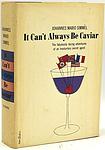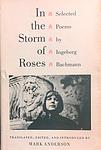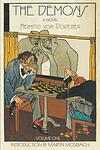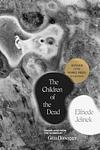The Greatest Austrian "Fiction" Books Since 1950
Click to learn how this list is calculated.
This list represents a comprehensive and trusted collection of the greatest books. Developed through a specialized algorithm, it brings together 284 'best of' book lists to form a definitive guide to the world's most acclaimed books. For those interested in how these books are chosen, additional details can be found on the rankings page.
Genres
Countries
Date Range
Reading Statistics
Click the button below to see how many of these books you've read!
Download
If you're interested in downloading this list as a CSV file for use in a spreadsheet application, you can easily do so by clicking the button below. Please note that to ensure a manageable file size and faster download, the CSV will include details for only the first 500 books.
Download-
1. Correction by Thomas Bernhard
"Correction" is a complex narrative revolving around the life of a man named Roithamer, a genius obsessed with constructing an architectural masterpiece, the Cone, in the center of the Kobernausser forest. The story is told through the perspective of his friend who is reading Roithamer's notes after his suicide. The novel explores themes of obsession, isolation, and the pursuit of perfection, while also delving into the protagonist's troubled relationships with his family and society.
-
2. The Piano Teacher by Elfriede Jelinek
"The Piano Teacher" is a dark exploration of power dynamics, sexuality, and repression. The story revolves around a piano teacher at a prestigious music school in Vienna who lives with her overbearing mother in a state of emotional and sexual repression. Her life takes a turn when she becomes sexually involved with a young, self-assured student. The relationship, marked by sadomasochistic games and emotional manipulation, spirals out of control, leading to a tragic end. The book is a profound critique of bourgeois values and the oppressive structures of society.
-
3. Extinction by Thomas Bernhard
"Extinction" is a novel that explores the dark and complex themes of family, identity, and history through the eyes of its protagonist, a professor living in Rome. When he receives news of the deaths of his parents and brother in a car accident, he is forced to confront his past and his Austrian heritage. The narrative delves into his thoughts and feelings, his criticisms of his family and society, and his philosophical musings on life and death, all while he prepares to return to his family's estate for the funeral. The novel is renowned for its dense, stream-of-consciousness style and its unflinching examination of the human condition.
-
4. Woodcutters by Thomas Bernhard
Woodcutters is a darkly humorous critique of Vienna's artistic elite. The story takes place over the course of a single evening, as the narrator attends a dinner party in honor of a recently successful actor. As the evening progresses, he reflects on the pretentiousness and hypocrisy of the guests, the mediocrity of their artistic achievements, and the tragic suicide of his former lover. The novel is a scathing indictment of the vanity and self-delusion of the artistic community.
-
5. Concrete by Thomas Bernhard
The book is a darkly introspective narrative that delves into the mind of a reclusive, obsessive intellectual who is struggling to complete his scholarly work on the composer Mendelssohn. As he grapples with his own ailments and the perceived mediocrity of his surroundings, the protagonist's stream-of-consciousness monologue reveals his deep-seated anxieties, self-loathing, and profound isolation. The narrative is a relentless examination of the protagonist's psyche, showcasing his critical view of society and his own personal relationships, which are fraught with tension and dysfunction. Through this, the novel explores themes of artistic creation, intellectual elitism, and the suffocating nature of expectations and familial obligations.
-
6. The Wall by Marlen Haushofer
The book is a profound exploration of isolation and survival, following a woman who finds herself unexpectedly cut off from the rest of the world by an invisible, impenetrable wall. With the rest of humanity seemingly vanished, she must come to terms with her solitary existence in a remote forested area, accompanied only by a few animals. As she adapts to her new reality, tending to the land and the creatures that become her companions, the narrative delves into themes of self-reliance, the intrinsic connection between humans and nature, and the resilience of the human spirit in the face of unimaginable circumstances. Through her introspective journey, the protagonist examines the essence of her being and the meaning of life when stripped of society and its constructs.
-
7. The Guiltless by Hermann Broch
"The Guiltless" is a novel that explores the disintegration of values and the rise of fascism in Germany between the two World Wars. It follows the lives of several characters, including a businessman, a musician, and a murderer, whose stories intertwine to paint a picture of a society in moral and social decline. The narrative delves into their personal struggles and moral dilemmas, reflecting the broader societal issues of the time and offering a critique of the political climate that allowed for the rise of totalitarian regimes.
-
8. The Left-Handed Woman by Peter Handke
"The Left-Handed Woman" is a poignant, introspective novel that explores the life of a woman who decides to live alone after her husband leaves on a business trip. She attempts to find her own identity and independence by distancing herself from her usual social circles, including her young son. The novel is a deep dive into her thoughts, feelings, and experiences as she navigates her new life, offering a profound exploration of solitude and self-discovery.
-
9. Wittgenstein's Nephew by Thomas Bernhard
"Wittgenstein's Nephew" is a semi-autobiographical novel that explores the friendship between the narrator and his friend Paul, who is the nephew of the famous philosopher Ludwig Wittgenstein. The story takes place in Vienna and is set against the backdrop of the Austrian mental health system. The novel delves into themes of sanity, insanity, and the fine line that separates the two, while also offering a critique of Austrian society. It is a meditation on the nature of illness, both physical and mental, and the impact it has on personal relationships and one's perception of the world.
-
10. The Afternoon of a Writer by Peter Handke
"The Afternoon of a Writer" is a contemplative exploration of a day in the life of a solitary writer who, after a successful morning of writing, decides to take a walk through an unnamed European city. As he strolls, he grapples with feelings of alienation and existential dread, questioning his purpose and the worth of his work. The book delves into the writer's inner struggles, his observations of the world around him, and his reflections on the act of writing itself.
-
11. The Last World by Christoph Ransmayr
"The Last World" is a novel that reimagines the exile of the Roman poet Ovid in a remote village at the edge of the Black Sea. The story is set in a mythical time and place, where the villagers are haunted by strange transformations and echoes of Ovid's metamorphoses. The novel blurs the lines between the real and the imaginary, the past and the present, and the world of the living and the dead, creating a surreal and dreamlike atmosphere.
-
12. Why Is There Salt In The Sea? by Brigitte Schwaiger
The novel explores the life of a young Austrian woman who finds herself in a stifling marriage with a fisherman in a small coastal village. As she grapples with the mundane and oppressive nature of her daily life, she yearns for freedom and self-discovery. The sea, with its salt, becomes a metaphor for her tears and the bitterness she experiences, as well as the vast possibilities that lie beyond her current existence. Her internal struggle and the choices she faces reflect the broader themes of women's liberation and the search for identity in a world that often limits female autonomy.
-
13. A Sorrow Beyond Dreams by Peter Handke
This book is a poignant exploration of the author's mother's life and her struggle with depression, ultimately leading to her suicide. It provides a deeply personal and raw account of the author's attempts to understand his mother's despair and the societal constraints that contributed to it. The narrative is a profound reflection on memory, loss, and the complexity of human emotions, offering a stark and moving portrayal of a woman's life in a rigid, post-war society.
-
14. Lust by Elfriede Jelinek
This book is a provocative exploration of the dynamics of power and desire within the confines of a loveless marriage. Set against the backdrop of the Austrian Alps, it delves into the life of a woman trapped in a relationship with her abusive and unfaithful husband, a powerful paper mill owner. The narrative dissects the commodification of sex, the objectification of women, and the societal structures that perpetuate these themes. Through a stark and unflinching examination of the protagonist's degradation and the pervasive corruption in her world, the novel presents a scathing critique of consumerism, the patriarchy, and the hollow nature of modern relationships.
-
15. The Snows Of Yesteryear by Gregor von Rezzori
"The Snows of Yesteryear" is a memoir that explores the author's complex and tumultuous upbringing in Eastern Europe during the early 20th century. Through a series of vivid and poignant anecdotes, the book delves into the author's personal experiences with war, displacement, and the collapse of the Austro-Hungarian Empire, offering a deeply introspective and nostalgic reflection on the fleeting nature of time and the enduring impact of one's past.
-
16. Désirée by Annemarie Selinko
The novel is a historical fiction that follows the life of Désirée Clary, a young silk merchant's daughter from Marseille, who becomes romantically involved with a young Napoleon Bonaparte before he rises to power. After their relationship ends, Désirée finds herself navigating the complexities of French society during a turbulent period, eventually marrying Jean-Baptiste Bernadotte, who later becomes King Charles XIV John of Sweden. The story, told through a series of fictionalized letters and diary entries, portrays Désirée's transformation from a naive girl into a mature woman and a queen, offering a unique perspective on the political and social upheavals of the Napoleonic era.
-
17. It Can't Always Be Caviar by Johannes Mario Simmel
The novel is a thrilling espionage adventure following the life of Thomas Lieven, a charming and resourceful banker who is reluctantly recruited into the world of international espionage during World War II. Despite his desire for a peaceful life, Lieven finds himself entangled in a web of intrigue, assuming multiple identities and engaging in a series of daring escapades across Europe. His culinary skills, wit, and luck become his greatest assets as he navigates through the dangerous game of espionage, outsmarting intelligence agencies and avoiding peril at every turn. The story is a blend of humor, romance, and suspense, showcasing the protagonist's attempts to stay alive and out of prison while reluctantly serving multiple warring governments.
-
18. Kaspar and Other Plays by Peter Handke
"Kaspar and Other Plays" is a collection of avant-garde, thought-provoking plays that explore deep philosophical questions about language, reality, and the human condition. The titular play tells the story of a young man who learns to speak and, in doing so, is manipulated and controlled by society. The other plays in the collection continue to challenge conventional ideas and push boundaries, offering a unique and profound commentary on the world.
-
19. The Loser by Thomas Bernhard
"The Loser" is a philosophical novel that revolves around the complex relationship between three friends who are all piano virtuosos. The narrative is driven by the protagonist's obsession with his friend's suicide, which he believes was triggered by the realization that they could never surpass the genius of their third friend. The book delves into the protagonist's psyche as he grapples with themes of talent, ambition, failure, and the destructive power of comparison.
-
20. Selected Plays And Libretti by Hugo von Hofmannsthal
This collection brings together a selection of dramatic works by a prominent figure in the early 20th-century literary world, showcasing his talent for blending poetic language with profound psychological insight. The plays and libretti included span various genres, from historical dramas to adaptations of classic myths, each marked by the author's exploration of themes such as identity, transformation, and the human condition. The works also reflect the author's collaboration with influential composers of his time, contributing to the evolution of opera and theater through his innovative approach to storytelling and character development.
-
21. Slow Homecoming by Peter Handke
The book in question is a lyrical exploration of themes such as identity, memory, and the sense of belonging through a series of interconnected narratives. It follows the journey of an unnamed protagonist who, after a period of self-imposed exile, embarks on a quest for self-discovery and reconnection with his homeland. Through his travels, he reflects on his past experiences, the landscapes he traverses, and the people he encounters, all of which contribute to his gradual understanding of home not just as a physical place, but as a complex tapestry of relationships, history, and inner peace. The narrative is characterized by its introspective tone and vivid, poetic descriptions of both the inner and outer worlds the protagonist navigates.
-
22. In The Storm Of Roses by Ingeborg Bachmann
"In the Storm of Roses" is a collection of profound and evocative poems that delve into the complexities of human existence, exploring themes of love, loss, and the enduring human spirit amidst the backdrop of post-war Europe. The poet's masterful use of language and imagery weaves a tapestry of emotion and thought, inviting readers to contemplate the nature of reality, the pain of memory, and the possibility of redemption. Through a blend of personal introspection and universal resonance, the work captures the tumultuous journey of the soul seeking understanding and beauty in a fragmented and often harsh world.
-
23. Die Strudlhofstiege by Heimito von Doderer
"Die Strudlhofstiege" is a sprawling novel set in Vienna during the early 20th century, exploring the interconnected lives of a diverse cast of characters. Through vivid and intricate storytelling, the book delves into themes of love, power, and the human condition, offering a panoramic view of a society on the brink of change. With its richly detailed descriptions and complex characterizations, the novel presents a captivating portrait of Vienna's social and cultural landscape, while also delving into the depths of human desires and aspirations.
-
24. The Demons by Heimito von Doderer
The novel explores the intricate lives and psychological depths of a vast array of characters in interwar Vienna, focusing on the transformative experiences and moral dilemmas they face. Through a richly woven narrative, the book delves into themes of power, guilt, and redemption, set against the backdrop of a society on the brink of monumental change. The story masterfully intertwines the personal and political, revealing the complex interplay between individual desires and societal pressures. Through its detailed portrayal of Vienna and its inhabitants, the novel offers a profound commentary on the human condition, examining how the demons within and without shape our destinies.
-
25. The Children Of The Dead by Elfriede Jelinek
This novel is a unique and haunting exploration of memory, history, and the legacy of the Holocaust in Austria, presented through a complex narrative that blends elements of horror, satire, and social critique. Set in a stylized and eerie version of the Austrian countryside, the story unfolds around a protagonist who embarks on a journey that intertwines with the lives of the undead, revealing the persistent shadows of World War II and the Holocaust on contemporary society. The narrative's challenging structure, incorporating dense streams of consciousness and a shifting perspective, serves as a vehicle for the author's incisive commentary on issues of national identity, collective memory, and the dangers of forgetting the past. Through its innovative use of language and form, the book confronts readers with the unsettling realities of history's impact on the present, making it a compelling and thought-provoking read.
Reading Statistics
Click the button below to see how many of these books you've read!
Download
If you're interested in downloading this list as a CSV file for use in a spreadsheet application, you can easily do so by clicking the button below. Please note that to ensure a manageable file size and faster download, the CSV will include details for only the first 500 books.
Download






















